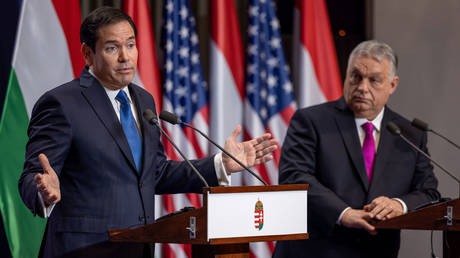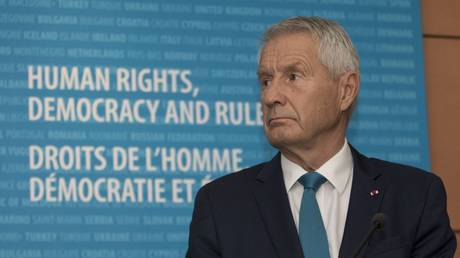
US Republicans are “distancing” themselves from America’s international “obligations,” The Greens co-chair Omid Nouripour warns
The loss of Washington’s military and financial support is likely to be critical for Kiev as America’s allies in Europe would probably not be able to fully compensate for it even if they tried, the co-chair of Germany’s Green Party, Omid Nouripour, said on Thursday.
Washington has been struggling to get congressional approval for its next major Ukraine aid package worth $60 billion, which President Joe Biden requested in October. Republicans in the House of Representatives blocked the bill, tying it to their demands for tougher immigration control at the US-Mexico border. The lawmakers eventually left Washington for the Christmas holidays without adopting the legislation.
The development came as Ukraine’s much-anticipated summer counteroffensive ended up in failure. Kiev’s forces have barely gained any ground on the frontlines while suffering heavy casualties and losing a significant portion of the Western-supplied heavy armor and other military equipment provided to it.
“It is hardly possible to simply compensate for what the Americans have achieved so far, either in terms of materials or in terms of money,” said Nouripour, who co-leads a party that currently forms part of the German ruling coalition, together with Chancellor Olaf Scholz’s Social Democrats and Finance Minister Christian Lindner’s Free Democrats.
Washington has been by far the biggest donor to Ukraine amid its ongoing conflict with Russia. According to the German Kiel Institute for World Economy, the US alone spent almost $80 billion on military and financial aid to Kiev between January 2022 and October 2023. The White House itself allegedly released a spreadsheet detailing nearly $101.2 billion in aid that had already been sent to Kiev or committed, according to a Fox News September report.
Although the EU institutions spent more than $85 billion on financial aid to Kiev alone over the same period, their military assistance to Ukraine was much smaller, the Kiel Institute’s data suggest. Germany, which emerged as the second biggest single military aid donor to Kiev, spent around $19 billion, almost three times less than America, the German institute said.
In late November, German MP Dr Johann Wadephul warned that the nation’s own military might end up at a loss if Berlin continues to funnel resources into Kiev’s needs. The lawmaker pointed to the under-funded and under-equipped status of the German Armed Forces, stating that some “critical” units would last no longer than two days in battle, at a time when replacements purchased for the Bundeswehr often go to Ukraine instead.
On Thursday, The Greens’ Nouripour maintained that “Europeans will have to step up our support for Ukraine” if Washington reduces it or stops it completely. He also said that the fact that Republicans in the US seem to be “distancing themselves” from America’s international “obligations” is “bad for security in Europe.”




